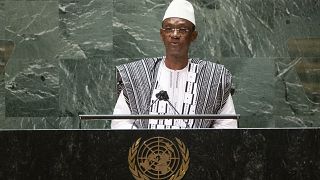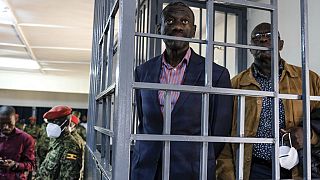Zika virus
A recent report by the Lancet Infectious Diseases research scientists has revealed that an estimated 2.6 billion people living in Africa and the Asia-Pacific region are vulnerable to the Zika virus.
The report relied on air travel numbers of travellers arriving from Zika-affected areas, to examine the regions and times where the potential health, economic, and social effects from Zika virus are greatest.
Zika Virus Around the World | HealthGrove
According to the author of the report Isaac Bogotch, Nigeria stands out as one of the high-risk zones owing to it’s large population and other ecological factors.
He said: “We actually map out areas that are of higher risk than others, so parts of west Africa such as Nigeria have all the right ingredients for a zika virus outbreak, so for example they have the right type of mosquitoes, currently they have the right temperature, the right amount of rainfall, they have to travel from Nigeria to Zika virus affected areas, Latin America and the Caribbean, so its a good set up for the virus to be introduced.”
Bogoch however said there was no cause for panic, saying that public health structures should come up with response and control strategies since the potential of the virus spreading is already existent.
In Africa, Angola receives the most visitors from #Zika virus-affected countries in the Americas,due to its historical ties to Brazil.
— Muisyo® (@Muisyo_) September 5, 2016
“It doesn’t mean we should panic, it just means that we should be aware of that there is a potential for it to come to parts of Africa, and you know there are a few things to consider one is that remember that most people that get infected with zika virus are just fine. The real concern is pregnant women,” he said.
In Africa, Angola receives the largest number of travellers from Zika virus-affected countries in the Americas, mainly because of the country’s historical ties to Brazil.
Zika Background
According to Medical Daily, currently, over 65 countries and territories around the world are battling transmission of the Zika virus. Earlier this year, the World Health Organization declared the virus —mainly spread by the bite of the Aedes mosquito and sometimes sexual transmission — an international health emergency. WHO’s declaration was in response to the 2014 outbreak in French Polynesia and the 2015 outbreak in Brazil. These outbreaks were linked with a significant increase in cases of microcephaly and other neurological complications in babies born to women who had contracted Zika virus disease during pregnancy.
The WHO emphasized the need to fast-track research on Zika infections in order to better understand the link between Zika and pregnancy complications, including microcephaly. Other necessary research includes the need for a better understanding of how the infection spreads from person to person, where the virus occurs geographically, how to diagnose it quickly and accurately, and how to control mosquito populations that transmit the virus.












11:05
Africa's hight cost of climate change [Business Africa]
01:17
COP29 finance talks lag as the summit reaches its halfway mark
01:38
COP29: What next for Africa's energy transition?
01:00
Civil society takes center stage at Brazil’s G20 social summit
00:55
New report shows sub-Saharan Africa receives the least diabetes treatment
01:58
Climate adaption: Unfulfilled pledges mean “lost lives and denied development” – UN chief